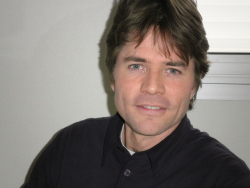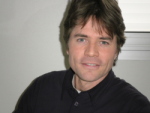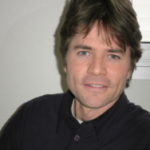
Some people experience fear when moving forward. They always refer to past events. A behavioral disorder known as neurosis. To address this debilitating psychological condition, Biodanza, which etymologically means “dance of life,” can give “the courage to move forward,” says Bruno Ribant.
A trained psychologist, he offers Biodanza workshops twice a week at St François clinic in Nice. He defines himself as a facilitator: “we facilitate the path to enhance people’s abilities to live.”
What is Biodanza?
Its theoretical foundations are based on psychoanalysis, philosophy, medicine, and biology. “One could say it is a proposal aimed at strengthening people’s ability to express themselves, their identities, and their communication abilities.” From conception, an individual is endowed with potential “which they will express more or less, depending on whether the environment is favorable or not.” This could refer, for example, to the family environment. Bruno Ribant compares it to a grain of wheat: “when you put a grain of wheat in the soil, the grain already has potential, an ear. But it’s not certain it will become a beautiful ear.” Biodanza aims to create a favorable environment: it stimulates vitality and the ability to live. These are indispensable elements whose goal is to achieve relaxation, letting go, and connecting with other individuals. It’s a method that meets the universal needs of human beings: vitality, sexuality, creativity, affectivity, and transcendence.
Born in the 1960s
Biodanza was originally created by Rolando Toro Araneda. A Chilean, he was a professor of medical anthropology at the university, and he conducted experiments with music in a psychiatric hospital. He noticed that patients behaved differently depending on the music they listened to. “He began to create a sort of theoretical model to account for the effect of music and exercises on mood and the connection of neurotransmitters. Neurotransmitters are the language of the nervous system that allows each neuron to communicate with each other. Over time, Biodanza gained significant recognition. This method was born in Latin America. Rolando Toro Araneda later emigrated to Argentina, Brazil, Italy, and exported his method with him. In France, Biodanza can also be practiced, “it includes about ten or fifteen schools.”
Open to all individuals wishing to enhance their potential, Biodanza adapts to many cases and is beneficial in cases of Alzheimer’s or Parkinson’s disease, for example. People with reduced mobility can also find fulfillment through the dance of life. As Rolando Toro Araneda said, “the quality of life does not come from social or economic success, but from a deep connection to life.”



